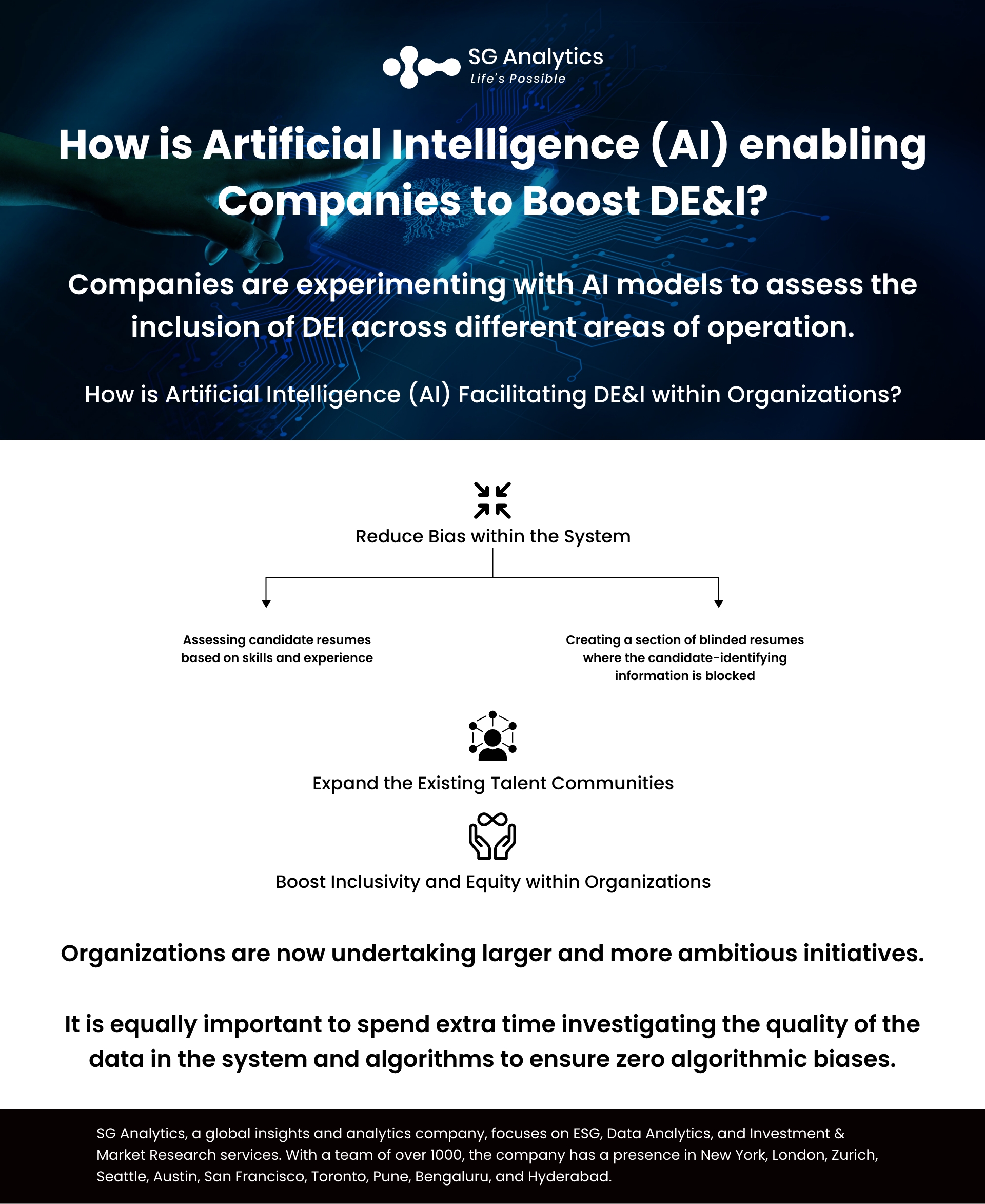Environmental sustainability is becoming critical for organizations to stay relevant and competitive in today’s evolving landscape. Much like digital transformation, integrating sustainability mandates organizations to alter every operation in the business. Today, sustainability is advancing as an integral part of developing a corporate framework. Sustainability for organizations can be categorized into three areas – Environment, Social, and Governance (ESG).
Today, thinking only about environmental sustainability is one of the imperatives. It is equally important to consider technology investments that are driving sustainability in enterprise and customer operations.
-
Revenue from sustainable products is expected to grow about six times as compared to the rate of other products.
-
50% of consumers today are open to paying a higher price for sustainable products that have a social and environmental impact on the supply chain.
-
By 2025, consumers will prefer products or services that will cause less damage to the environment, human health, and society.
Read more: Sustainability Outlook: Top Emerging Trends in 2023 and Beyond
Environmental sustainability is fueling a market revolution that will give companies opportunities to design new products and services. Massive government funding is further empowering companies to integrate environmental sustainability as a strategic imperative, thereby fostering historical business opportunities.

A vital business opportunity, sustainability is more than just a matter of survival for businesses. Seeded with immense government investment, environmental sustainability is now ushering into a new green market revolution. The environmental sustainability predictions for 2023 will enable companies to embrace environmental sustainability with integrity and transparency. The upcoming environmental sustainability predictions are set to have the most impactful changes that businesses anticipate.
2023 Predictions for Environmental Sustainability
-
Carbon offsets and credits will be back in vogue. Carbon offsets have experienced their share of criticism for being an excuse for companies to sidestep actual carbon reduction activities. However, these dubious and flawed practices on offset strategies have attracted immense scrutiny in the offset market. While technology vendors and organizations have learned their lessons from previous carbon offsets, the new framework is aimed to lead the way for setting a different model for carbon-offset transparency standards.
-
Fortune Global 200 firms to disclose policies to limit travel for sustainability. Pre-pandemic air travel demand did outpace decarbonization efforts. On the contrary, COVID-19 restrictions assisted in reducing business travel by nearly 54%. With operations getting back to normal, business travel is set to make the much-awaited comeback. However, not all firms are returning to business as usual. Many are using this restart to reevaluate their existing travel patterns by tracking travel emissions data. Public companies are now preparing for greater SEC scrutiny, including fines for misstatements and omissions. These restrictions will enable companies to anchor their sustainability goals and inculcate corporate policies to drive environmentally sustainable behavior.

Read more: The ESG Rating Phenomenon: A Guide to Understand ESG Ratings
-
A set standard to claim supremacy in carbon reporting for greater transparency. Combining the best of existing standards to introduce a new carbon accounting standard will emerge as a benchmark for public-private collaborations. This standard will be functional across industries and regions. This will assist in clarifying the murky areas surrounding scope 3 reporting, like remote work emissions data, thereby enabling businesses to usher into a new era of transparency. This new framework will help companies to deliver reliable Scope 1, 2, and 3 insights to investors, shareholders, as well as customers, thereby qualifying the organization for credit and lending.
Factors Driving Environmental Sustainability within an Organization
-
Investor demand – One of the most influential factors shaping the shift toward environmental sustainability is investor pressure. Gartner research highlighted that 85% of investors mandate ESG factors in their investments. The investor community is majorly focusing on sustainability in organizational practices.
-
Attracting New Talent – Being a sustainable business is crucial to attracting new talent. A Deloitte survey identified that 49% of Gen-Zs and 44% of millennials make career choices based on their personal ethics. If a company is environmentally responsible, only then will it experience a rise in new talent. Businesses not focusing on sustainability can lead to losing out to their competitors.

-
Enhanced Productivity – Being sustainable leads to employees being more motivated to perform better. Environmental sustainability is assisting in reducing costs, thus affecting operating profits by up to 60%, according to a McKinsey & Company report. Being sustainable also helps in increasing productivity, thus fostering an inclusive culture.
-
Consumer demand – An increasing number of consumers – millennials and Gen-Z – are voicing their concerns and demanding sustainable products. 73% of Gen-Z consumers are willing to spend more on businesses that provide sustainable products. 60% of consumers in the UK reduced the usage of single-use plastic to adapt to a more sustainable way of living. With the demand for sustainability set to increase globally, embedding environmental sustainability in the corporate framework is essential for businesses to stay relevant in the coming years.
Sustainable Strategies for the Future

Almost 90% of executives believe that sustainability is a vital component. However, the issue lies in the lack of implementation. Only 60% of organizations today have sustainability strategies. A sustainability framework and a chief sustainability officer reporting to the board are imperative for any organization.
Read more: Sustainability Data Strategy: Top Key Components for a Positive Impact
With an environmentally sustainable strategy, organizations can make long-term investments. However, driving sustainability has its own challenges, such as a weak commitment from the board, little accountability for sustainability teams, zero authority to implement initiatives, and rising talent gaps.
Opportunities to advance sustainability goals across the business include:
-
Integrating automation to reduce resource-intensive activities.
-
Employing artificial intelligence (AI) and natural language processing (NLP) to predict the climate impact on business.
-
Incorporating advanced analytics to identify real-time performance analysis
-
Cloud to transform everyday processes to enable remote work

Sustainable technology is important to optimize costs, energy performance, as well as asset utilization. However, it is enabling organizations to drive ESG outcomes, such as improving wellness and delivering the traceability required to ensure responsible business practices within the organization. Environmentally sustainable technology is also stimulating new business models along with tech-enabled products to serve customers better.
Key Highlights
-
90% of executives acknowledge that sustainability is important. However, only 60% of organizations have incorporated sustainability strategies.
-
Embedding environmental sustainability in the business framework is essential to meet the evolving investor pressure as well as consumer demand.
-
Sustainability is also proving to attract top talent, reduce costs, as well as boost profits.
-
Sustainable technology as a digital framework of solutions is enabling businesses to generate environmental, social, and governance (ESG) outcomes for their enterprise as well as their customers.
-
Investors, consumers, organizations, and governments are emerging as the four pillars that are driving the shift toward sustainability.
Read more: Sustainability in Tech: 3 Ways for Companies to Become More Sustainable

Final Thoughts: Prioritizing Environmental Sustainability
In the coming years, sustainability will play a critical role and will be embedded at the core of the corporate strategy. With the increase in the number of Fortune 500 companies appointing Chief Sustainability Officers (CSO), businesses are placing much-needed importance on sustainability. At the same time, to meet investor pressure, consumer demand, and regulatory requirements, businesses are placing their bet on incorporating sustainable practices into their operations.
With the skepticism gone, sustainability, in an environmental, social, and financial sense, is emerging as a new management imperative. This is shifting the corporate focus to achieve long-term viability. t is also enabling organizations to generate tangible returns on investment (ROI).
Environmental sustainability offers immense opportunities for organizations striving to thrive in these challenging times. With the rapid transformation of the business landscape toward sustainability, enterprises are integrating frameworks that support an effective sustainability strategy. The significant shift from negatively associated justifications of resources to a positive acknowledgment of opportunities is assisting in establishing sustainable management with operations. The four key stakeholders playing a major role include investors, consumers, industry peers, and governments.
With a presence in New York, San Francisco, Austin, Seattle, Toronto, London, Zurich, Pune, Bengaluru, and Hyderabad, SG Analytics, a pioneer in Research and Analytics, offers tailor-made services to enterprises worldwide.
A leader in ESG Services, SG Analytics offers bespoke sustainability consulting services and research support for informed decision-making. Contact us today if you are in search of an efficient ESG integration and management solution provider to boost your sustainable performance.

